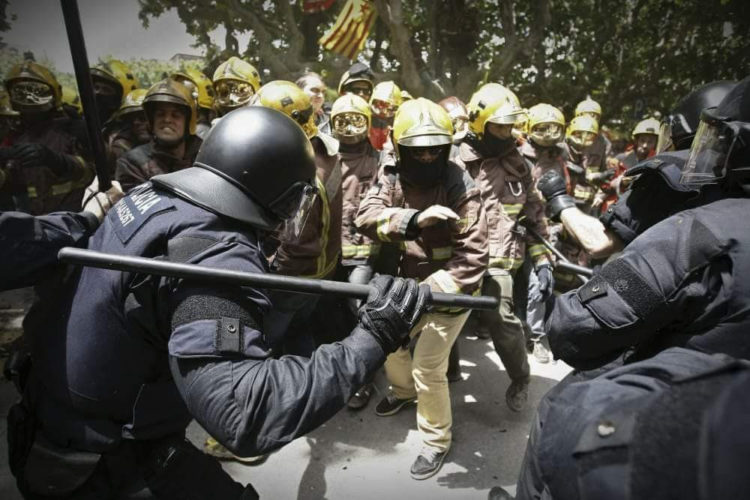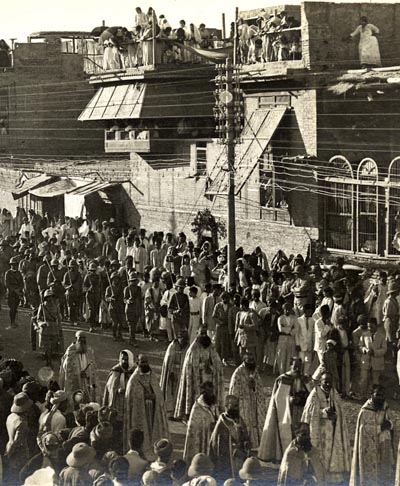By Steven T. Zech for Denver Dialogues
State repression, armed conflict, and a variety of humanitarian crises have generated mass migration from places like Iraq, Syria, Afghanistan, and Eritrea. More than a million migrants and refugees made their way to Europe in 2015 in search of asylum and opportunity. Some countries initially greeted migrants with open arms. For example, Germany pledged to facilitate the asylum process and accepted hundreds of thousands of migrants. However, recent events, such as a wave of sexual assaults and robberies on New Year’s Eve in Cologne and elsewhere, have fueled anti-migrant sentiments. Many Europeans have voiced concerns about strained resources, challenges related to cultural immersion, and the potential for new incidents of Islamic terrorism.
In some cases these concerns have brought out the worst in people. For example, when a fire broke out at a building that was to be used to house migrants in eastern Germany, some onlookers cheered and others attempted to prevent firefighters from extinguishing the blaze. Incidents of direct violence against refugee shelters in Germany increased five-fold in 2015. A sharp rise in the number of migrants, along with the perception that migrants pose an economic burden and security threat, appears to have negatively affected public attitudes toward immigration. Many western and northern European countries that had previously held positive views about the desirability of immigration are beginning to question the feasibility and desirability of current policies.
The Emergence of Anti-Migrant Vigilante Patrols in Finland
The challenges related to migration trends faced by Finnish cities are not imagined. Although Germany received nearly 15 times as many asylum applications as Finland in 2015, Finland actually received slightly more migrants as a per capita figure. Finland contends with many of the same economic, cultural, and security challenges as other high migrant-receiving countries in Europe. Although local reactions to the European migration crisis have differed drastically, fear and suspicion have led to the formation of far-right vigilante groups in some Finnish towns and cities, as well as other parts of Europe. Citizen groups calling themselves the Soldiers of Odin keep watch, patrol the streets, and protect locals from immigrant threats, both perceived and real. The Soldiers of Odin leader from Tampere, Finland explained, “We are a patrol group looking out for the safety of people, the safety of women.” The Tampere group formed following dozens of crimes and incidents of harassment linked to asylum-seekers, including the alleged rape of a local Finnish woman. Over 4,000 migrants arrived in Tampere in the latter part of 2015, mostly from Iraq. In comments to a variety of news outlets, citizen patrol participants have expressed concerns about asylum-seekers’ cultural differences and the need to protect “our women” from harm. One Soldiers of Odin participant in Tampere insisted that they do not have a problem with “good” refugees, while another participant described all asylum-seekers as a “bunch of animals.”
Although in some cases citizen patrol groups might provide a welcome deterrent to crime and offer additional community security, allegations of participant links to neo-Nazism and previous criminal behavior are worrisome. Xenophobia and aggressive rhetoric have generated new tensions in Finland’s third largest city. Members of the Tampere branch of the Soldiers of Odin wear black jackets with the group’s name and logo when they patrol. To some they appear to be more “menacing biker gang” than “neighborhood watch.” The patrols are not illegal as long as they simply report possible incidents to the police. However, police and state officials fear the patrols may interfere with law enforcement. Finland’s interior minister Petteri Orpo told Reuters, “These kinds of patrol clearly have anti-immigration and racist attributes and their action does not improve security. Now the police must commit its scarce resources to (monitoring) their action.”
Many migrants in Tampere are afraid following an incident of arson at a refugee center and another incident where a group of Finnish men stabbed an asylum seeker. Actions from both migrants and local Finns have generated a tense climate of fear and distrust. In fact, thousands of Iraqis are leaving Finland voluntarily, citing hostility from locals as one reason. And more recently, a report claims that an Islamist counter-movement called the Soldiers of Allah has formed in Oslo, Norway in response to a Soldiers of Odin branch there. These types of developments promise to escalate tensions and make violent confrontation between vigilante groups and migrant populations more likely. A counter-movement by Islamist actors only validates many of the fears that originally inspired vigilante mobilization and led to the proliferation of citizen patrol groups across European cities. What can communities do to counteract xenophobia?
Humor in the Face of Hostility: Clowning Around or Important Political Acts?
On the first night that the Soldiers of Odin patrolled the streets of Tampere, they met an unexpected form of resistance: clowns. A group calling themselves the Loldiers of Odin (a play on the acronym l.o.l. – laugh out loud) use humor and performance as a means to confront what they view as hostile anti-migrant forces. The clowns use “tactical frivolity” as a nonviolent means to combat xenophobia and intimidation. And it’s proven to be surprisingly effective.
On this particular night, the Loldiers surrounded the anti-migrant citizen patrol, made jokes, played in the snow, and shook tambourines. A large group of costumed activists, which included an imposing Odin dressed in a purple-striped bathrobe, sought to counteract the anti-migrant message. One clown carried a flag with a misshapen swastika that read, “Sieg Fail!” The Soldiers of Odin remained quiet and eventually disbanded and went home. The clowns bid them farewell.
The Loldiers’ first action developed into a nonviolent showdown over public space. They believe that Finland’s streets can become either an environment of fear and hate or laughter and love. They share a message of tolerance as an alternative to intimidation and nationalist sentiment. Their actions provide a counter-narrative for Finns, as well as the migrant population in Tampere. Loldier protests have become an important way to exchange ideas and share viewpoints on diversity in Finnish society. They hope to influence public opinion about the migration crisis. The clowns have also caused public disturbances and their actions have been criticized by law enforcement. However, part of their broader message appears to affirm public faith in the ability of the police and government to address challenges related to migration. The Loldiers criticize the extra-legal nature of anti-migrant citizen patrols and communicate support for existing state institutions that uphold the rule of law.
Is Laughter the Best Medicine?
Other groups have employed similar tactics to deal with similar issues. For example, a the San Diego branch of the Clandestine Insurgent Rebel Clown Army (CIRCA) initiated a “Boredom Patrol” to counteract and mock what they described as racist vigilante patrols by the Minutemen along the U.S. and Mexico border in 2007. The group of clowns proudly noted that, “Our only weapons are feather dusters, baguettes and bubbles.”
I am not naïve. Clowns are certainly not a fix-all policy prescription for anti-migrant hostility in Europe. However, as European countries continue to face security challenges tied to migration, states will need to come up with better policies to address citizen safety concerns. Citizen patrols are one form of autonomous security provision when the state is either unwilling or unable to guarantee community safety. Non-state actors all over the world provide for their own security. For example, self-defense forces in rural Peru and the urban “catch your thief” movement confront rampant criminality that has overwhelmed the state. There is nothing inherently wrong with citizen patrols in Finland or elsewhere. However, the police in Finland are capable of meeting these security concerns related to the migration crisis and some of the citizen patrols hold worrisome xenophobic beliefs. Current citizen patrols should coordinate with other civil society groups and create a broader coalition of support to limit the potential for anti-migrant violence. The clowns provide an effective deterrent against abuse and impunity by making actions visible and questioning citizen patrol motivations. The anti-migrant protestors also question the clowns, and in a New York Times article on the Loldiers, citizen patrol group participants dismiss their antics. They believe that just as in Batman’s Gotham City, the heroes are the vigilantes, and the clowns are the villains. We will see.
Steven T. Zech is a post-doctoral fellow at the Sié Chéou-Kang Center for International Security and Diplomacy at the University of Denver.








1 comment
I wonder whether local politicians / police are trying to reign in this threat to the rule of law (i.e., the state’s claim on a monopoly on the legitimate exercise of coercion). My expectation is that they are not: the likely victims of these types of “citizen’s councils” cannot vote, and thus the ballot box is a poor mechanism for protecting their rights.
In any case, thanks for bringing this case to our attention!